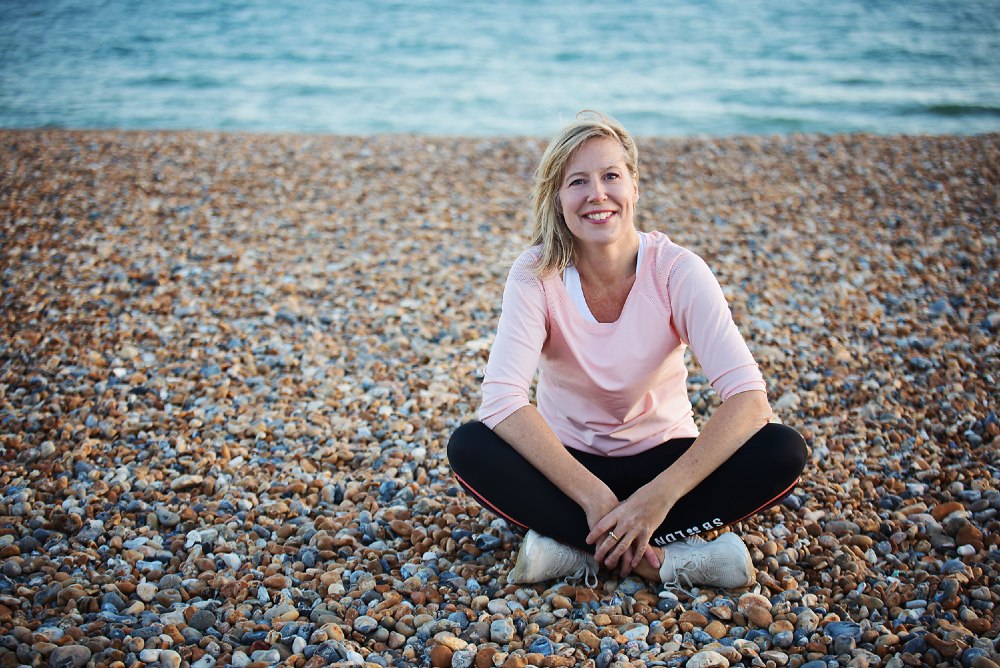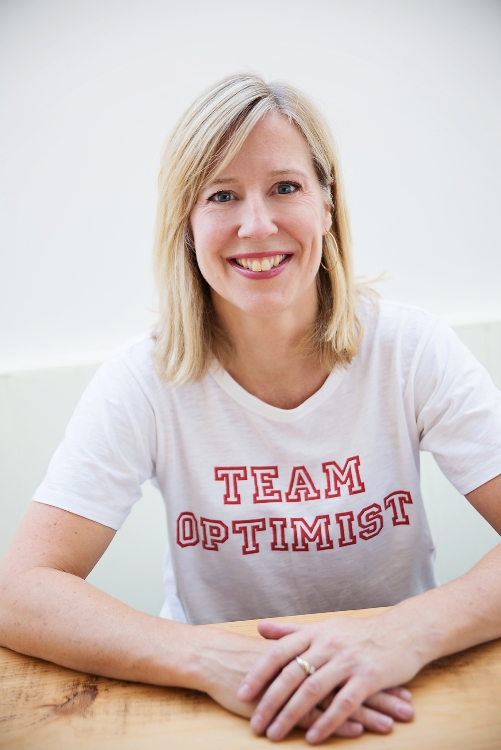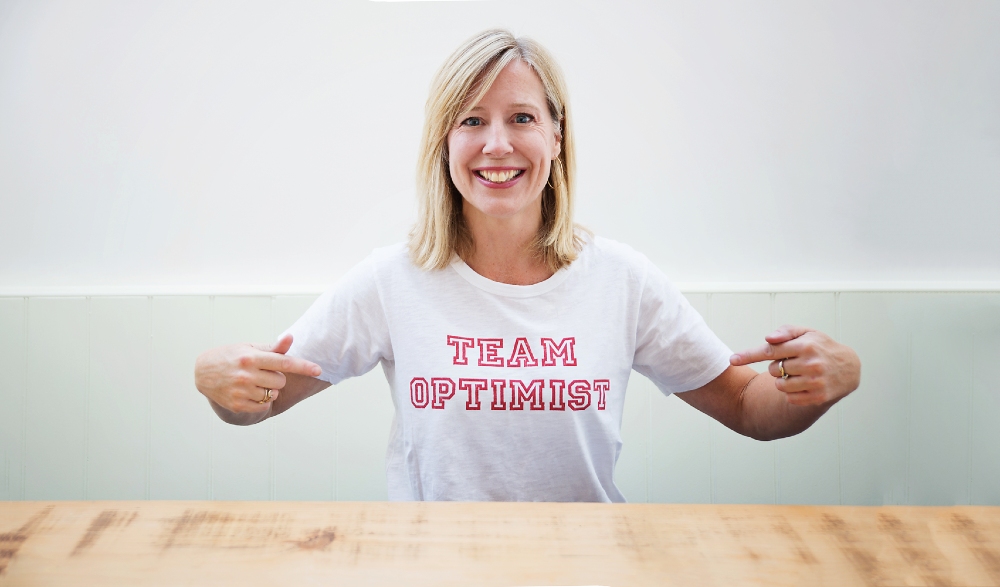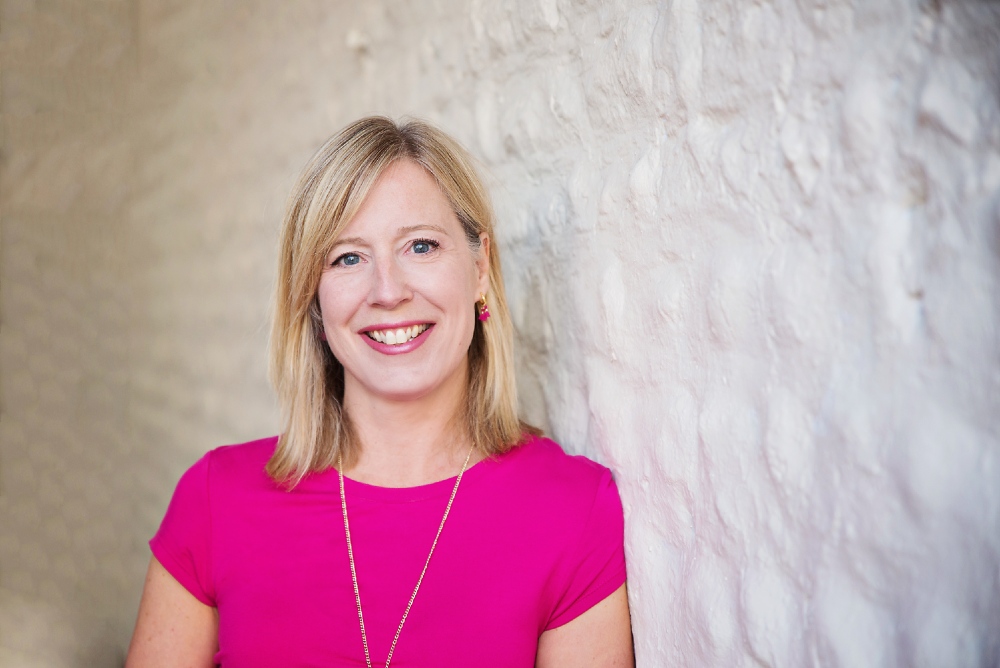
Whole life coach to visionaries and founders, Lisa Mitchell, hasn’t let lockdown get her down as she’s been busy working on her business to help people achieve what they want to in life.
Growing up Mitchell felt detached from a normal life, she didn’t want to conform to the unwritten rules of life, and this carried on through her adult years as her job in marketing wasn’t fulfilling her like she thought it should have done.
But after meeting the coach at a women’s football team she randomly joined and connecting with the coaches on a leadership course she went on, Mitchell knew that this was to be her new career path.
The entrepreneur spoke about why she loves working with visionary founders, what it was like to suffer from imposter syndrome, revealed why joining a football team was the turning point in her life and explained why her favourite question is: “What if?”
When did you realise that a normal conventional life wasn’t for you, and you didn’t want to follow the unwritten rules of life?
I think it was about 2003, well I started taking action on it in about 2003 when I was at the supermarket, so that was my last corporate job and I was in a senior leadership position and I used to look around me and think, is this really what I want for my life? Also, as I saw a lot of people moving up through the ranks, they weren’t that happy, and I was thinking is that really what I want?
But actually in reality it goes back to being a child, I think I’ve always had this sense that life is meant to be different and I can remember being a kid and growing up in the North of England with all those ideas of life like it’s not meant to be easy and you have to work really hard and get a job and just knuckle down and then eventually you might get to retire and have a nice time. I can remember even then thinking that makes no sense to me, I don’t get it.
I think for all of us who find a mission in life it generally goes back to what you felt as a child, like something you felt you wanted to change, so I think it goes all the way back to then, but I really took action on it in 2003.
You used to suffer from imposter syndrome, could you expand on that and explain how it made you feel?
I think as I said going right back to when I was a kid, I felt like I was different, this is an experience many of my clients have also actually that feeling a bit like you’re the sensitive, emotional one, you’re different from everybody else. Somebody described it as the unicorn in the family the other day which I quite liked rather than black sheep or something. I think I always had that sense. This is what I find often when I coach people is the stuff that I’m coaching them on is to do with work but actually it goes right back to whether you felt accepted, acknowledged and loved as a child.
When I was working in marketing I kind of fell into it, I never knew what I wanted to do and then I fell into marketing and I was pretty good at it, I was in a senior position and all of that but I didn’t have a passion for it and so I didn’t have that confidence deep down. I always felt like, oh my God I’ll just have to work harder than everybody else, that was my strategy. I don’t have any natural talents so I’m just going to work harder than anybody else in order to well and I don’t think that was true actually but that’s how I felt at the time. I’d see people around me who seemed to have this instinctive ability with it and just love it.
I remember one time we’d launched this campaign at Sainsbury’s, and everyone was in the pub celebrating and people were talking about all these marketing campaigns on the TV and all of that and I was like you know what I just don’t think I care enough, it just doesn’t light me up. I think it’s been my journey a lot through my life of feeling like I’m not enough, I don’t feel that now by the way! But feeling like there’s something missing or I’m not enough or I just have to work super hard.
And it also goes back to the fact that I had a very demanding dad, and I also had a very high achieving twin, so if you’re the twin that does less well at school and is less social and less everything then it’s really hard to create your own identity and feel that sense of confidence. That sense of being second went right the way through my childhood and then of course what happens then when you go into work is I didn’t have that innate confidence built in and so I was just kind of like oh my God I seem to be doing well but it’s probably a fluke, they’re going to find me out at some point, I don’t have this instinctive ability with it.
And so, my strategy was to just work harder than anybody else and also party harder than anybody else, so I was the original work hard play hard party girl, but I was actually pretty unhappy underneath now I see it in hindsight. I was trying to cover up for stuff really and not get found out and I think that’s what imposter syndrome is really.

How enlightening was it for you when you went on a leadership course during your marketing job and met the coaches which made you realise that coaching was for you?
It was amazing because I’d never had any idea what I wanted to do. I did an English degree, so I went into my first job which was book publishing at Penguin Books, and I just fell into an English degree because I liked it and I fell into marketing at Penguin because it felt like it made sense to go into book publishing. And when I went on that senior programme and I got very friendly with one of the people that was leading it, one of the coaches, and we started playing around with coaching each other like you do and I was like oh my God this is brilliant.
I realised actually the bit of marketing that I liked was the psychology bit, I’ve always found it really interesting to see what makes us tick and all of that and also I gravitated as I moved up in the corporate world I gravitated towards mentoring people, looking after people, I loved running my team so it kind of transpired like oh I don’t think it’s the marketing bit that I’m good at or I really love, it’s actually the people bit which I love.
Then at the same time I joined a women’s football team completely randomly. I was just in that mode where I was like I’m going to do a whole load of new stuff and see what happens. So, I joined this women’s football team and I met my first ever coach there and that was really what created the proper transformation because I realised that all the stuff that I’d sat on from childhood that I hadn’t dealt with and why I was behaving the way I was behaving and taking responsibility for my life so stopping blaming other people and taking responsibility. And she was like a model for me, so there was someone who was doing something she loved, was really passionate about it and also who really created life on her terms. Because both my parents worked for the civil service, I don’t even know where my entrepreneurial gene came from.
I didn’t have a model for being an entrepreneur, I never thought I’d run my own business, it wasn’t even on my radar. But through the football team, I had another friend at work who knew a lot of people who ran their own businesses, I met my coach – and it was like this whole world just opened up. And then when I left Sainsbury’s I worked for a consultancy for a little while and I started facilitating groups and coaching people and it was the first time in my life I thought I’m actually really good at this, I’m really good at it and I love it.
I’ve got this passion and talent for it, and I can’t tell you how amazing that was having felt this imposter syndrome for a long time to actually feel like wow I’m good at this and I can really do it and I really love it. I was saying to one of my colleagues the other day that I’ve been doing it for about 17 years now in different guises and I love it more today than I did then. It’s just endlessly fascinating to me, so I’ve definitely happened on the right thing.
Would you say that joining the women’s football team ultimately changed your life because that seems to be your turning point?
Well, I think it was part of a big shift that I was going through but I think what it was is that I would never do something like that normally, I’ve not done a lot of team sports and stuff like that, and I just wanted to challenge myself.
So, I think where it was pivotal for me was, I did something that was totally out of my comfort zone, I had no idea what I was doing. We weren’t particularly good, it was more me in Regent’s Park, we did have a coach, like a friend of a friend who volunteered to coach us and then probably regretted it but it was completely outside my comfort zone and I think that was the brilliant thing about it was it was the camaraderie, it was a team thing, it was meeting new people, it was exploring a new skill – it was an opening up of a new horizon for me. Yeah, it was a pivotal moment because it’s really opened up a whole new world for me.

Could you give an explanation of the work you currently do with visionary founders?
I’ve always loved working with entrepreneurs, I don’t know where my entrepreneurial gene came from, but I’ve always been someone that challenges things, that asks why and why not and what if we did it differently and what if - that’s one of my favourite questions.
When I was at Sainsbury’s I managed the Jamie Oliver advertising contract, that was part of my job, and so when I was leaving there they actually took me on as a coach, so that was my first experience of working with a visionary founder of their organisation, working in the Jamie Oliver organisation and I worked with a whole load of people there and I was in meetings with him and I saw him in action and it so inspired me. He was running things like the school dinners thing at the time and his mission around food and it was the first time I’d been around somebody at that level, doing that work in the world and I just loved it and I felt like I was part of it and making a difference.
Then I’ve worked with big organisations like Net-A-Porter, when Natalie Massenet was at Net-A-Porter, I’ve worked with Charlotte Tilbury, I’m working with some amazing founders in the US at the moment for a company called Madaluxe group. I’ve always had this instinctive connection to visionary founders and entrepreneurs and helping them really continually evolve, connect their biggest vision and create change in the world because ultimately that’s what they’re about.
My guys are very successful, they’re wealthy, all that stuff, but actually their motivation is about impact and changing the world in some way as is mine. I’ve also in this process had to claim my own space as a visionary founder and to sort of say I’m creating change in my work in terms of what they can create in the world and in their organisations. So, I’m working with them to help stretch them, to get them into their vision and also, we have to heal pieces as we go, the more you stretch the more you have to.
Whether you call it imposter syndrome, whether you call it blocks, whether you call it trauma, whatever the thing is we all have to heal at different levels and we’re stretching into new levels ourselves so I’m helping them continually evolve and become that person they need to be to get to the next level. And then I’m also helping them create these amazing organisations that are very different. So, non-hierarchical, really collaborative, passionate organisations where people feel like they can bring all of them to the workplace.

What was your lockdown experience like?
I’m all about mindset and choice and consciously creating your reality because I’ve been very interested in this whole process and I’ve said that I made a conscious choice not to feel locked down in lockdown, I really did. And I really feel like it is a choice, I feel like there’s a lot of fear and panic being propagated in the media at the minute and I’ve got a nine-year-old daughter and I just didn’t want her to grow up feeling like, oh I can’t go near anybody, and I can’t hug anybody and it’s all danger and fear. It just worries me that goes into kids psyches and into our own psyches actually.
I had a very interesting lockdown because I actually sold my house, I’ve just been going through a divorce - I got my decree absolute yesterday - so I was also getting divorced, I sold my family home, I was living in different Airbnbs, I moved location from West Sussex to Bournemouth which is where I am now. People look at it and go how the heck? And I also run my business, so people would say to me how did you do all that in lockdown, seriously?
I think I feel very lucky to have had all the coach training and development that I’ve had so I’ve got my own coach, I’m still on my own journey and I know how to create my own reality, I know how to stay in that positive frame of mind. Even when challenging things are happening like selling my house and getting divorced, I know everything happens for a reason and I know there’s a bigger thing playing out, so I see lockdown as a kind of awakening of the human race, if that’s not too big a concept! I think actually we’re going into two camps, a camp that’s still in fear and panic and a camp that’s saying right what does this mean for us, what are we evolving into, what are we stretching into? And that’s where I choose to play.
When I got to the end of last year my daughter actually looked at me and she was like: “I don’t get it Mummy, I think we’ve had an awesome year.” We’ve done all these fun things, we live in Bournemouth, so we go to the beach all the time, we’re in nature, we’ve got a dog, so we walk the dog, so she said to me we’ve moved to where we want to live, everything is sorted out with her dad and my business has been extraordinary. And this year in particular, the finances and results of my business has gone crazy. But I have created all that as a conscious choice.
I’ve also launched my podcast, the Visionary Founders Podcast, and part of that is to get some of these messages out there and not just for the people who can afford to pay me and my coaching rates but actually for people in general to just share my knowledge and experience and just say you can choose and you can create your reality, you can create how you feel no matter what.
So, that’s what my divorce taught me, no matter what’s happening around me I can still choose to be happy, I can still choose to create my reality and that’s been a massive gift.
Where do you see yourself in the next five years; have you planned that far ahead?
Yes, I always have a vision, I think this is a pivotal time in my life, I’ve just got my decree absolute yesterday which is just another point, an end of a chapter and a beginning of the next one.
In the next five years we’ve got a whole plan for our dream home that we’re going to buy, moving to Bournemouth is part of what I call extraordinary living, creating my extraordinary life and vision. Having an amazing business but also still having time to walk my dog and be on the beach with my daughter and create an amazing lifestyle. And also, then really expand my business and message. I’m about to launch some group programmes and some different things this year, it’s part of why I’ve got a PR agency, I’m just trying to get my message out there in the world. I really see the business expanding massively in the next five years. I’m doing it in a way that also gives me freedom and gives me balance and again that’s a lot of what I work with my visionary founders to do.
One of the things I’ve realised is that it’s not really about business it’s about your whole life and so when I work with someone new, I always say to them well tell me what you want to create across your whole life, tell me all the pieces and then we’ll work out how business fits into all those pieces of your life.
I was actually thinking about that this morning because in the past I worked with a female in business and we were talking about her work and her vision and what she wanted to create in her business and at the end of it I said, are we missing anything? If you achieve all that does that make you feel satisfied and fulfilled and everything? And she said no, not really. I said why and she said well I really want a relationship, and this was a few years ago and that’s when I realised that I have to take a whole life approach. Because I said to her, well okay then you can’t work 80 hours a week, like when are you going to meet this guy? And if you meet him, how are you going to spend any time with him?
So, I’m actually now calling myself like a whole life coach for visionaries and entrepreneurs and I feel really passionate about that. But not only do you create these amazing businesses but when you’re a passionate entrepreneur it’s very easy to give up your entire life for business because I sit here and say my vision is to launch a group programme and I want to do this, I want to do the podcast – I’ve got a million ideas, but actually for me it’s about me and my daughter, hopefully a future partner, well definitely a future partner and creating this extraordinary life and showing people that it’s possible that you can create an amazing income, do work that you’re passionate about, that you can create all those things and also you can have an amazing life and that you can have all these things in balance.
So that’s what I’m going to be creating for myself in the next five years. I want to be a trailblazer in that so people can look at me like I look at coaches I know and say okay she can do it; I can do it – this is possible.
MORE FROM INTERVIEWS: Mallory Franklin discusses representing Team GB at the delayed Tokyo Olympics
Tagged in Lifestyle

